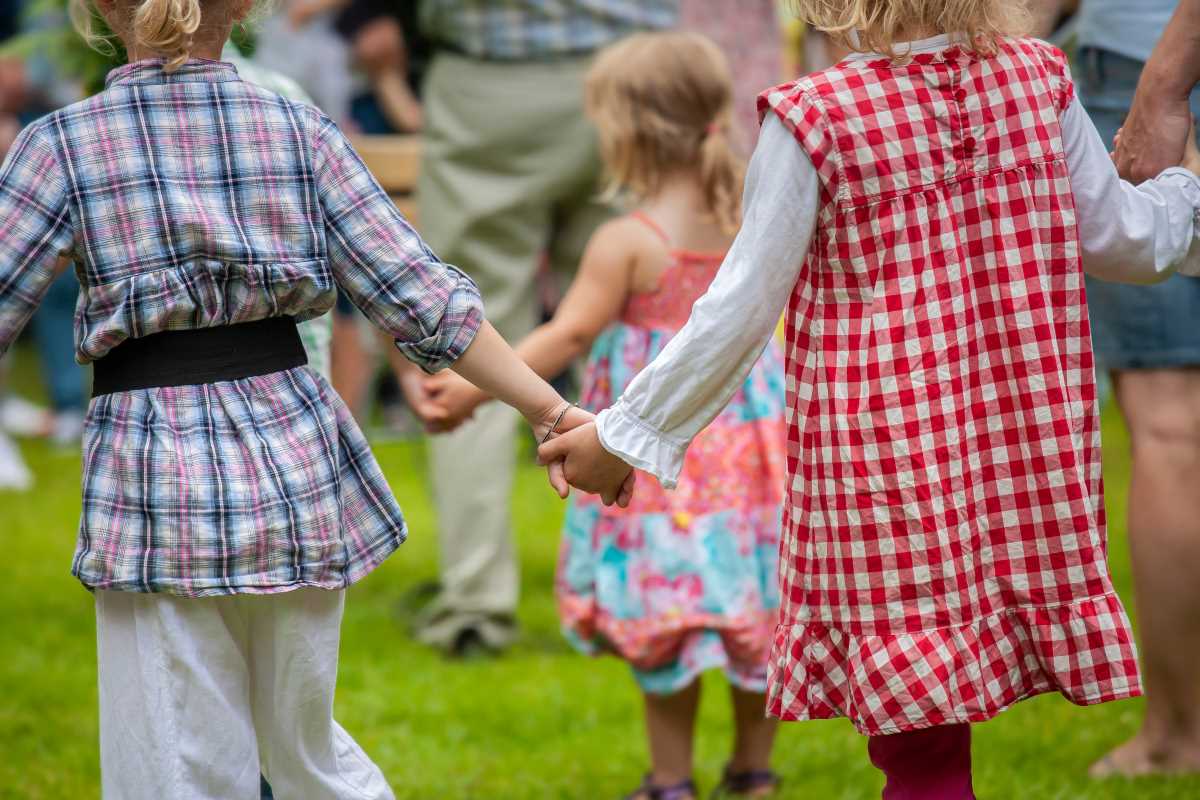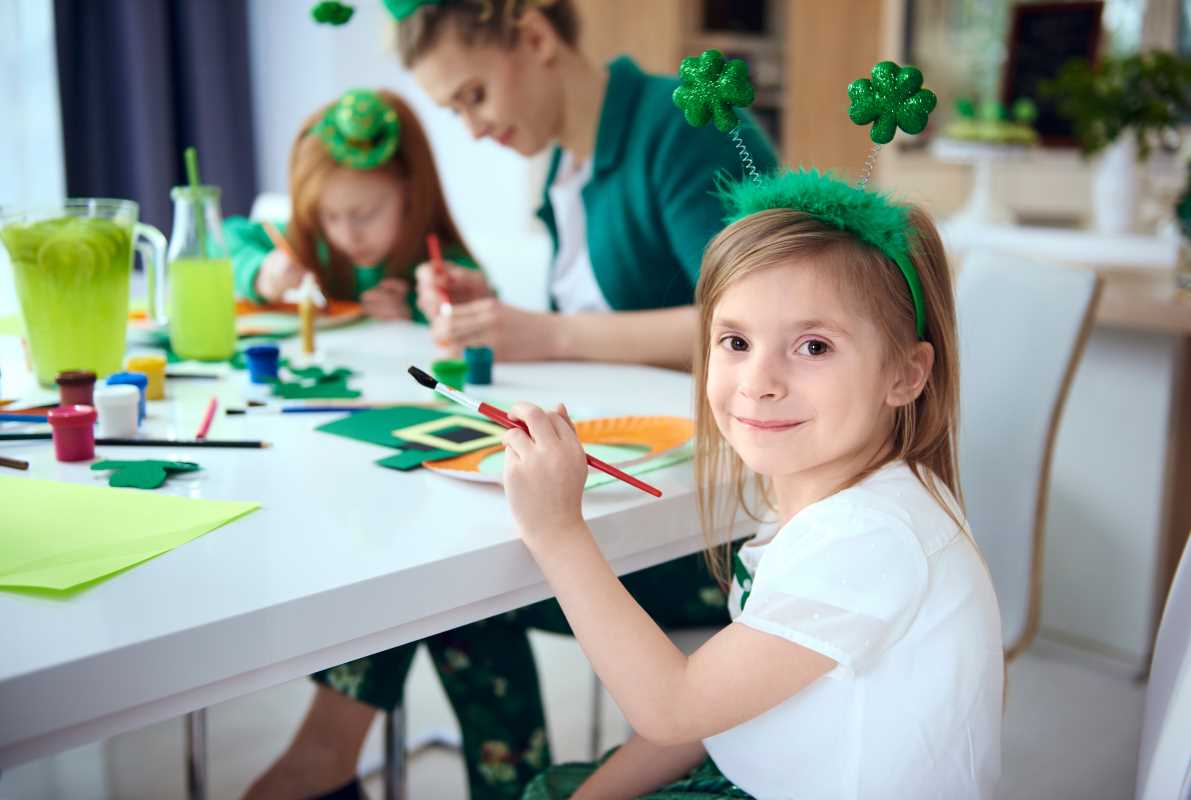Celebrating holidays beyond the usual can offer an exciting change and introduce families to new traditions, cultures, and ways of spending time together. As an experienced father, it’s clear that broadening the scope of celebrations beyond the typical U.S. holidays adds variety and fresh experiences to the year. Whether they come from different cultures, unique historical events, or quirky observances, these holidays present a great opportunity to spend quality time with family, try new activities, and create lasting memories. This is a look at some holidays, including international ones, that can offer a fun twist to your yearly celebrations.
Midsummer (Late June)
Midsummer is widely celebrated across many European countries, particularly in Sweden, Finland, and Estonia. Typically occurring around June 24, Midsummer is a celebration of the summer solstice, marking the longest day of the year. While the holiday's traditions may vary from country to country, it’s most often associated with outdoor celebrations, flower crowns, bonfires, and dancing.
For families, it’s a great time to gather outdoors for a day of games, music, and nature walks. You could also introduce kids to the tradition of creating flower crowns or even try making your own version of the traditional Midsummer meal with herring, new potatoes, and strawberries. Even if you don't live near the Nordic countries, celebrating Midsummer with outdoor fun, songs, and games brings a delightful, international touch to your family’s summer routine.
International Day of Families (May 15)
While traditional holidays like Mother’s Day and Father’s Day are widely recognized, International Day of Families on May 15 offers a global perspective on family relationships and their importance in society. This holiday is celebrated in many countries around the world and highlights the importance of nurturing family connections.
It's a perfect day to spend time together, plan family-centered activities, and create new traditions. Families can make a day of reflecting on what makes their unit unique, creating personalized family activities, or cooking a traditional dish from a different country. This holiday promotes unity and appreciation for the bonds we share and can bring a global focus to your family’s traditions.
Diwali (October-November)
Diwali, the Hindu festival of lights, is celebrated by millions of people worldwide, particularly in India and other South Asian countries. The date changes each year depending on the lunar calendar but generally falls in October or November. Known for its vibrant celebrations of light and good fortune, Diwali involves lighting oil lamps, decorating homes with colorful rangoli (patterns made from colored powder or flowers), and sharing sweets and gifts.
For families, celebrating Diwali can be a wonderful opportunity to introduce kids to Hindu culture, participate in activities like making paper lanterns, and cook traditional Diwali treats such as sweets and snacks. Learning about the meaning behind the holiday and joining in the celebrations brings a rich, cultural experience to your family’s holiday calendar.
Pi Day (March 14)
Pi Day, celebrated on March 14, is a fun way to mix education with celebration. Pi, the mathematical constant (3.14), is the reason for this quirky holiday. For families, Pi Day can be an educational and playful occasion where kids get to explore the wonders of math in a hands-on way.
Families can host a "pie" party, where everyone makes or enjoys different types of pies (like fruit, cream, or savory pies). Add some playful competitions, like a Pi memorization challenge or a math-themed trivia game, to make the day even more engaging. Pi Day might not be an international holiday, but it's a clever way to bring a bit of math and fun into the home.
National Puzzle Day (January 29)
National Puzzle Day, celebrated on January 29, is a simple but enjoyable holiday. Whether it’s completing jigsaw puzzles, solving brain teasers, or playing strategy games, puzzles are a great way to bring the family together in a fun and challenging way. This holiday is perfect for family bonding through problem-solving and friendly competition.
If you want to add a global twist, try out puzzles featuring famous landmarks from different countries or challenge your kids to learn the names of countries while solving the puzzles. National Puzzle Day is a wonderful way to engage kids in a constructive, educational, and entertaining activity.
Lunar New Year (January-February)
Lunar New Year is celebrated by millions of people across East Asia, including China, Korea, and Vietnam. The holiday marks the beginning of a new lunar calendar year and is rich with tradition and symbolism. The date changes each year, but it typically falls in January or February. Families celebrate with fireworks, parades, dragon dances, and the giving of red envelopes containing money for good luck.
For a family celebration, you can teach your kids about the customs associated with the holiday, such as cleaning the house to sweep away bad luck and making traditional foods like dumplings or spring rolls. Lunar New Year is a perfect way to introduce children to cultural traditions while engaging in fun activities that include the whole family.
National Superhero Day (April 28)
National Superhero Day, celebrated on April 28, brings out the fun side of both kids and adults as they celebrate the heroes in their lives—both fictional and real. Kids love the chance to dress up as their favorite superheroes, and parents can get in on the fun too by dressing up as their own “superheroes.”
This holiday can be celebrated with superhero-themed games and activities, such as obstacle courses or "save the day" challenges. You can also use this day to highlight real-life heroes in your community, like firefighters, teachers, or healthcare workers, and talk with your children about what it truly means to be a hero. National Superhero Day adds an adventurous and educational twist to the usual holiday celebrations.
Holi (March)
Holi, the Hindu festival of colors, is celebrated by millions across India and Nepal and around the world. Taking place in March, Holi celebrates the arrival of spring and the victory of good over evil. The central tradition of Holi is throwing brightly colored powders at each other in a joyous celebration.
While it’s not widely observed in every country, families can still have fun by hosting their own version of the festival. You can buy colored powder or even make your own from natural ingredients and let kids throw the colors while learning about the significance of the holiday. Holi is a beautiful celebration of color, joy, and community and provides a perfect opportunity to teach children about diversity and cultural traditions.
World Environment Day (June 5)
World Environment Day, celebrated globally on June 5, is a day dedicated to raising awareness about environmental issues and encouraging positive action. For families, this day can be a great way to educate kids about protecting the planet. You can spend the day cleaning up local parks, planting trees, or teaching kids about recycling and sustainability. Many communities hold eco-friendly events on World Environment Day, so it’s also a good opportunity to participate in activities that raise awareness about environmental concerns. Celebrating this day helps instill in children a sense of responsibility and a love for nature, making it a valuable occasion for both education and action.
Embracing holidays from different cultures and countries can enrich your family’s celebrations and bring a global perspective to your home. Whether celebrating international festivals like Midsummer or Diwali, quirky days like National Superhero Day, or global awareness holidays like World Environment Day, these celebrations offer fun and educational opportunities for families to connect and create meaningful traditions.







